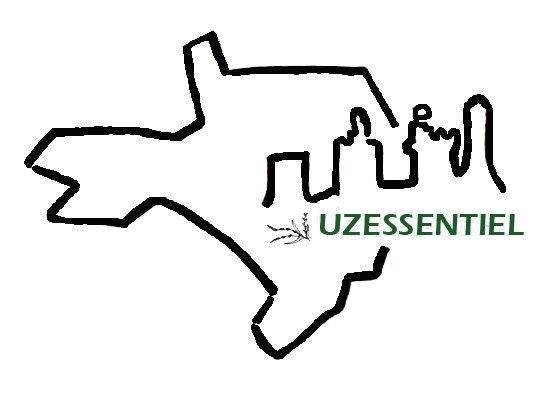Le pain de la Capelle : organic bread with character
- Par nbesse
- Le 30/08/2025
- Dans Local products & recipes
FR - We are in La Capelle-et-Masmolène (read our article) to meet Thibaut, a farmer-baker.
A new take on bread, but also, and above all, the pleasure of growing good grains that are environmentally friendly and healthy.
Want to learn more? So do we! Follow us for an encounter at the heart of grain farming.

|
"The cereals are grown on the farm to offer you a bread with a delicious taste."
|
 Le pain de la Capelle is a farmer-baker's bread launched by Clément and taken over by Thibaut Schelstraete, producer of cereals used to make his bread: soft wheat, einkorn wheat, chickpeas, etc.
Le pain de la Capelle is a farmer-baker's bread launched by Clément and taken over by Thibaut Schelstraete, producer of cereals used to make his bread: soft wheat, einkorn wheat, chickpeas, etc.
Deliberately diversified organic farming that respects environment & biodiversity (no weed-killers, insecticides, fungicides or any synthetic chemical fertilisers), which harm insect populations and wildlife that depends on them, is simply a matter of respecting the environment. The waste from sorting and cleaning the cereals can also be used, this time as animal feed. Nothing is lost, everything is transformed.
LET'S CHAT
Hello Thibaut,
Welcome to the Local products section of the blog.
Can you introduce yourself to our readers in a few words?
Trained as an agricultural engineer, I always had a deep desire to become a farmer in order to contribute to building a sustainable society.
In 2008, while I was a student, I discovered the concept of farmer-baker, which allows you to grow crops on small areas of land (the farm covers 25 hectares/active, compared to 200 to 500 hectares for a traditional cereal farmer) while adding value to your agricultural production and creating a strong link with consumers.
I am also passionate about ‘ancient wheat’: bringing forgotten varieties back into culture, preserving genetic heritage, regaining control of seeds, etc. After years of working in development of sustainable agriculture in France through various agricultural advisory structures, I moved to La Capelle-et-Masmolène in 2021 to work alongside Clément, a farmer-baker who was already in business.
Now that Clément is changing his life plans, I continue the activity and development of this project, which is particularly close to my heart.
Why did you originally choose the name Ferme Byzantine?
It was the name of the very first calf born on the farm! The Capelle bread allows me to personalise my project and remain neutral (Clément's bread, Thibaut's bread, etc.). The project can continue even if the name changes. What's more, it locates the bread in a specific region, a nod to the garrigue... The bread is made on site, and the cereals are grown here.
You started the La Ferme Byzantine adventure as a duo until this summer. What now?
I will continue alone for the time being, with delivery drivers helping me to deliver the bread. In the future, I would like to find someone to work with me to help with the baking or the land.
Finding a livestock farmer would also allow for a complementary relationship between livestock and crops, which is extremely important for the agronomic coherence of any farming system.
 Speaking of farming, does La Capelle bread have its own DNA?
Speaking of farming, does La Capelle bread have its own DNA?
Soft wheat and einkorn wheat (durum wheat is used to make semolina and pasta), bearing in mind that the soft wheat varieties grown on the farm are the result of a long selection process involving older varieties with lower gluten content, such as Touselle, Saissette de Provence and Pétanielle Noire de Nice, which are tending to disappear.
Is there a schedule to follow for growing your cereals? Do you leave fields fallow, as was done in the past, to allow the soil to rest before re-sowing?
People often talk about ‘letting the soil rest’ before cultivating it. But good, fertile soil is living soil that works great. And, paradoxically, for it to work well, you mustn't work it too much!
However, the problem is that in order to sow wheat, I have to work it a little, especially when farming organically (no weed-killers, for example). Added to this is the fact that the equipment used is old, and modern equipment that allows for shallow tillage requires too much investment at the moment.
So, one thing at a time. I am doing my best today to restore the fertility of my soil. My motivation? Legumes are the key, even holy grail, with as little tillage as possible, or even none at all. I therefore rotate crops with legumes and cover crops, which I intersperse after 1 to 2 years of cereal crops. Depending on the situation, I may choose to sow a meadow (with sainfoin or alfalfa) in order to further restore the fertility of my soil or reduce the pressure of certain weeds (such as thistles).
In addition, I am also experimenting with cereal/legume combinations. This requires time and a certain amount of hindsight to understand the advantages and disadvantages of certain combinations.
When it comes to working my fields, I try to plough as little as possible. However, I sometimes realise that it is better to plough once than to go over the same area several times with different tools. It's not always easy to know what to do. Should I go ahead or wait? I still have a lot to learn!
|
'La Capelle bread is like a cereal conservatory. I have multiple selection objectives: preserving cultivated genetic heritage, adapting the variety to the terroir (climate, soil, drought), adapting to organic farming methods (disease resistance, yield with low fertilisation, aggressiveness towards weeds or unwanted plants), baking quality (adequate gluten content, high protein content). The bread is made with our flour, ground on site with an Astrié mill. This flour is of the highest quality and is offered to customers.
|
 Let's take a quick look at your customers... Do they have a typical profile?
Let's take a quick look at your customers... Do they have a typical profile?
Well, not really. People who buy my bread love these rustic products, with their traditional feel and old-fashioned taste.
They may also support the organic bread movement, a healthy food par excellence. Organic farming, respect for the environment, and the preservation of genetic heritage too.
The breads on offer reflect the values of Le Pain de la Capelle: country wheat bread, the bakery's flagship product, made from einkorn wheat. There is also a seeded bread... Fig bread and sourdough fougasse with a delicious olive oil aroma are two of the specialities, as are the apricot and chocolate fougasse, which have obviously found their fans.

|
Chickpeas, a legume emblematic of Provence, are rich in protein. They are an excellent ‘rotation crop’ for wheat: they are a cleansing crop, providing nitrogen for the wheat that follows. Therefore, alternating between wheat and chickpea cultivation makes agronomic sense. They can be eaten in various forms: in salads (with sweet Cévennes onions, for example - Sweet Cévennes onions), hummus, etc. On some plots, mixing varieties or even species (wheat and field beans, for example) also allows for more suffocating cover crops that are less susceptible to disease.
|
Do you sometimes organise workshops, or welcome interns or work-study students to share your experience?
No, I don't hold educational workshops, but everyone is welcome to visit the farm and the bakery. I enjoy introducing visitors to my profession.
I don't have any interns at the moment, but Le Pain de la Capelle is still in its early stages. Sharing skills is a very good idea. While there is already a lot to do on the baking side, things are more irregular on the farming side.
Good to know: Le Pain de la Capelle has established partnerships with many local and organic producers. This is an opportunity to discover cakes, biscuits, eggs and many other regional specialities.
Many thanks to Thibaut Schelstraete for his contribution to the Local products section.
The address: Le pain de la Capelle, 527 route de Pougnadoresse, 30700 La Capelle-et-Masmolène. Contact: painson@mailo.com, Orders on 07 56 13 80 11.
